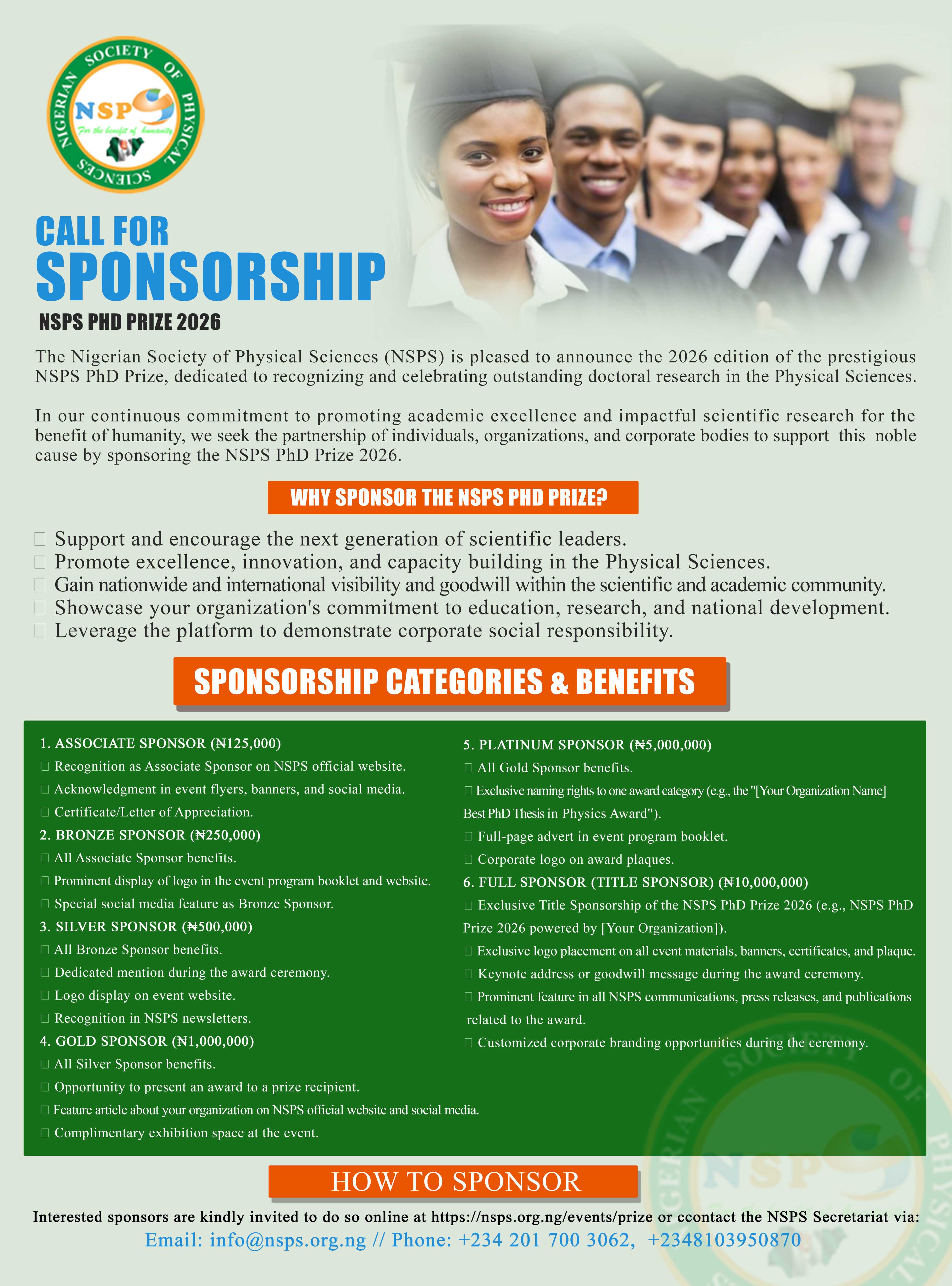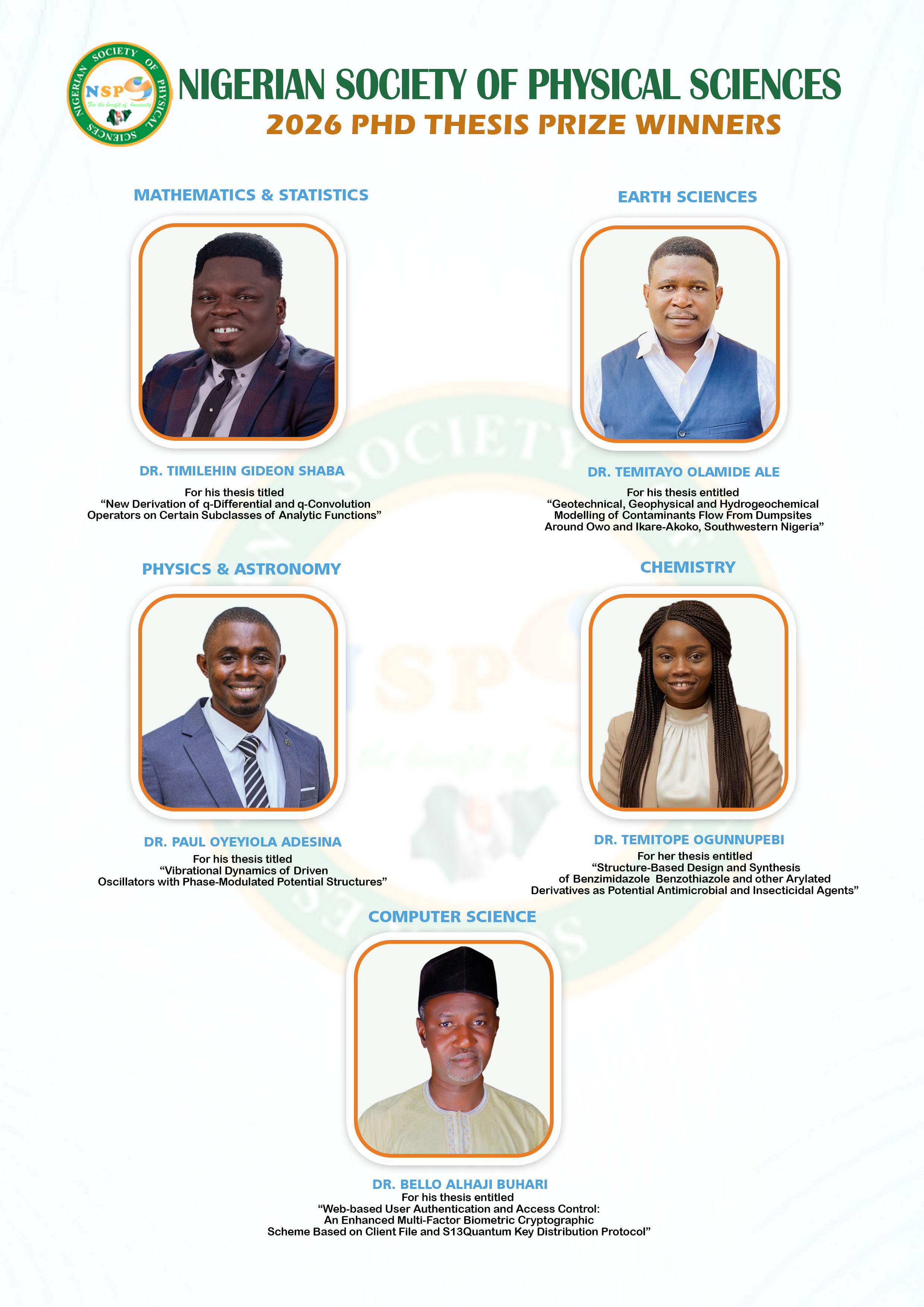Guidelines for Special Issue Proposals in JNSPS

Special issues are integral part of the activities of the Journal of the Nigerian Society of Physical Sciences (JNSPS). Timely topical issues with broad interests are addressed in special issues and should be organised by recognised experts in the proposed area. It is expected that special issues attract articles of the highest quality that fill an existing gap in the existing literature and address the dynamics in the proposed field.
In order to ensure quality and timeliness, guest editors (GEs) must be acknowledged experts in the proposed area and in tandem with the authors, must adhere to the issued timeline and editorial deadlines. The GEs must also ensure that reliable and expert reviewers are chosen for the issues. All articles would be processed following the guildelines of JNSPS in terms of novelty and scope.
The following guidelines and structure are established for special issues and are as follow:
1. Submitting a proposal for a special issue.
The Editor in Chief (EiC) can request proposals for special issues from the journal editorial board or from recognised experts. The collated proposals would be brought to the publication board for voting approval by the EiC.
The GEs for special issues must be at least three, up to a maximum of five, and should be recognised experts in their field. The selection criteria are a rigorous as that of JNSPS. A lead GE would be selected among the appointed GEs to coordinate the special issues including managing the review process and corresponding with JNSPS.
A special issue proposal should include the following:
- A document outlining the importance of the special issue to the community, accompanied by the GE names.
- A sample call for the proposal (CFP) including the proposal title, topic and relevant areas covered. The timely relevance of the topic should also be discussed.
- A brief bio of each GE detailing educational background, research interests, employment history, selected publications, awards and other relevant information.
- A proposed timeline including
- Submission deadline
- Review completion dates
- Notification of acceptance
- Final manuscript due
- Publication date
These dates should be specified in terms of weeks, take into consideration the editorial process and should in all not be more than 6 months.
A template timeframe could be:
- 6 months from the first published announcement to the deadline of submissions.
- 2 weeks to assign the paper to GE from time of paper submission
- 2 weeks to find reviewers.
- 6 weeks for the first review.
- 1 week for GE decision.
- 6 weeks for the author to revise.
- 6 weeks for 2nd review.
- 1 week for GE decision
- 3 weeks to decide which papers make the special issue
2. Selection of special issues
Once the CFP is concluded, the publication board will vote on all the submitted proposals and the EIC will convey the outcome to the proposers, explaining the decisions along with recommendations for revisions and resubmissions if appropriate.
3. Responsibilities of GEs.
Once special issues are approved, GE team should coordinate the entire review process. The team should refine the CFP in accordance with publication board recommendations and submit the final CFP along with the final timeline as outlined above.
The GE team will ensure that CFP directs prospective authors to JNSPS journal submission guidelines. The GEs should handle the manuscripts review process; ensure that the deadlines are strictly enforced and that the highest standards are adhered to.
4. Avoiding conflicts of interest by GEs.
- A GE cannot appear more than once, either as an Author or co-author, in papers submitted to the special issue. And in total, no more than three papers in the special issue should carry the names of the GEs
- A paper submitted to the special issue will be handled by the Lead GE and GEs while reporting to the EIC of JNSPS, who will ensure that the paper undergoes a very rigorous peer-review process.
- If any of the GEs have a conflict of interest with the authors of a paper in the special issue, the GE cannot handle the paper. These include being
- In the same organization as any of the authors.
- A research collaborator of any of the authors.
- Present or former student, advisor or any people closely connected to any of the authors.
In cases where the above occurs, the EIC should take over the handling of the paper.
5. Benefits of a Guest Editor
- Article processing charge waivers for three articles are granted to Guest Editor Team as a whole.
- Opportunity to work with a strong team of Editors
- Opportunity to network with an expert in the field and forging new contacts
- Opportunity to gain a better understanding of editorial processes
- Opportunity to be at the forefront of scientific communication and information
- Opportunity to improve academic profile






